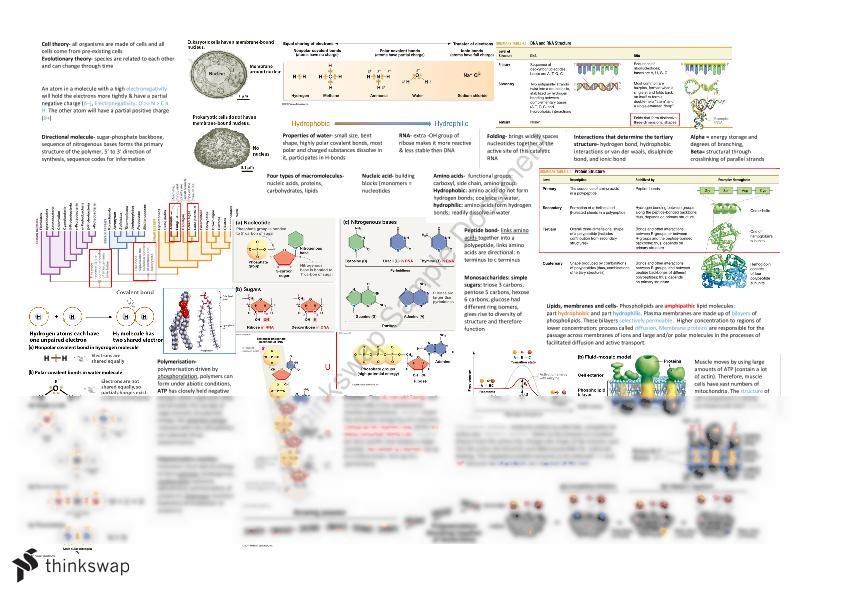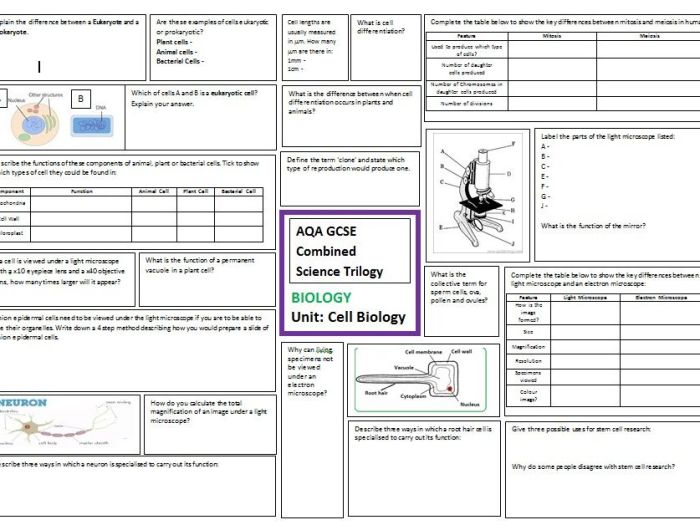Cell biology science olympiad cheat sheet – Embark on a captivating journey into the realm of cell biology with our meticulously crafted Science Olympiad cheat sheet. This indispensable guide unlocks the fundamental principles, intricate structures, and dynamic processes that govern the microscopic world of cells, empowering you to excel in this challenging competition.
Our cheat sheet is meticulously organized into logical sections, providing quick and easy access to key concepts. Tables and diagrams illuminate complex ideas, ensuring a clear and comprehensive understanding. Dive into the practical applications of cell biology, exploring its transformative impact on medicine, biotechnology, and agriculture.
Cell Biology Concepts
Cell biology is the study of cells, the basic unit of life. Cells are responsible for all the functions of life, from metabolism to reproduction. Cell biology is a vast and complex field, but its fundamental principles are relatively simple.
All cells are composed of a cell membrane, cytoplasm, and DNA. The cell membrane is a thin layer of lipids that surrounds the cell and protects its contents. The cytoplasm is a gel-like substance that contains all the organelles of the cell.
Organelles are small structures that perform specific functions within the cell. DNA is the genetic material of the cell and contains the instructions for making all the proteins that the cell needs.
Cells divide by a process called mitosis. Mitosis is a complex process that results in the production of two identical daughter cells. Cell growth is the process by which cells increase in size. Cell growth occurs when the cell takes in nutrients from its environment and uses them to build new proteins and other molecules.
Science Olympiad Cheat Sheet
The Science Olympiad is a competition for high school students that tests their knowledge of science. The Cell Biology division of the Science Olympiad covers a wide range of topics, including cell structure, function, and division. To prepare for the Science Olympiad, students should study the following topics:
- Cell structure
- Cell function
- Cell division
- Cell growth
- Cell signaling
- Cell metabolism
- Cell differentiation
- Cell death
Students should also be able to identify the different types of cells and tissues and understand the role that cells play in the body.
Cell Biology Applications
Cell biology has a wide range of applications in medicine, biotechnology, and agriculture. In medicine, cell biology is used to develop new treatments for diseases such as cancer and HIV/AIDS. In biotechnology, cell biology is used to create new products such as biofuels and pharmaceuticals.
In agriculture, cell biology is used to develop new crops that are more resistant to pests and diseases.
Cell biology is a rapidly growing field with the potential to revolutionize many aspects of our lives. As our understanding of cells continues to grow, we will be able to develop new technologies that will improve our health, our environment, and our world.
Cell Biology Experiments: Cell Biology Science Olympiad Cheat Sheet

There are many different ways to demonstrate cell biology concepts in the classroom. Here are a few simple experiments that you can try:
- Observe cells under a microscope.This is a great way to see the different structures of cells and how they move.
- Make a model of a cell.This can help you to understand the different parts of a cell and how they work together.
- Grow bacteria.This is a great way to learn about the growth and reproduction of cells.
- Study the effects of different substances on cells.This can help you to understand how cells respond to their environment.
These are just a few examples of the many different ways that you can demonstrate cell biology concepts in the classroom.
Cell Biology Resources

There are many different resources available to help you learn more about cell biology. Here are a few of the most popular:
- Cell Biology by the Numbersby Ron Milo and Rob Phillips
- Essential Cell Biologyby Bruce Alberts, Alexander Johnson, Julian Lewis, Martin Raff, Keith Roberts, and Peter Walter
- Molecular Biology of the Cellby Bruce Alberts, Alexander Johnson, Julian Lewis, Martin Raff, Keith Roberts, and Peter Walter
- The Cell: A Molecular Approachby Geoffrey M. Cooper
- Becker’s World of the Cellby Jeff Hardin, Gregory Bertoni, and Leslie J. Kleinman
These are just a few of the many different resources that you can use to learn more about cell biology.
FAQs
What is the purpose of this cheat sheet?
To provide a comprehensive overview of key cell biology concepts for Science Olympiad preparation.
How is the cheat sheet organized?
Into logical sections for easy reference, with tables and diagrams to illustrate complex concepts.
What are the practical applications of cell biology?
In fields such as medicine, biotechnology, and agriculture, leading to advancements in healthcare and other industries.